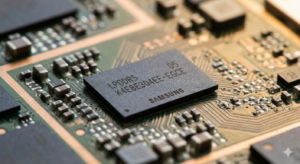
Alibaba is stepping up its AI game with the development of a new, more versatile AI inference chip, aiming to reduce its reliance on Nvidia amid ongoing geopolitical tensions.
Why it matters now:
U.S. restrictions have limited China’s access to Nvidia’s most advanced chips. While the mid-range H20 chip has been allowed back into China, it still falls short of Nvidia’s high-performance H100 and Blackwell series. Amid these constraints, Alibaba has joined other Chinese tech players like Huawei and Cambricon in accelerating domestic AI-chip development (Barron’s, Financial Times).
What makes this chip notable:
- Manufactured domestically, unlike Alibaba’s previous chips that were produced by TSMC (Reuters, Business Standard).
- Designed to handle a wider range of AI inference tasks, potentially offering greater flexibility for real-world AI applications (Reuters, The Times of India).
- Signals a strategic pivot toward self-reliance and resilience in AI infrastructure, aligned with broader national objectives (The Times of India, Reuters).
Strategic implications for China’s AI landscape:
- Boost in domestic innovation: With Alibaba developing its own advanced chip, China reduces its vulnerability to U.S. export controls and builds local technological strength.
- Enhanced competition in AI infrastructure: The launch adds pressure on domestic peers like Cambricon, which have already seen surging performance and profits due to increased local demand (Barron’s, Financial Times).
- Momentum for broader AI adoption: More capable Chinese-made chips can empower widespread deployment of AI across sectors—from cloud services and smart cities to enterprise solutions and generative models.
Bottom line:
Alibaba’s new AI chip is more than a technological upgrade—it’s a strategic building block in China’s evolving drive to establish independence in AI hardware. If the chip meets expectations, it could accelerate China’s push toward becoming a global AI powerhouse.





